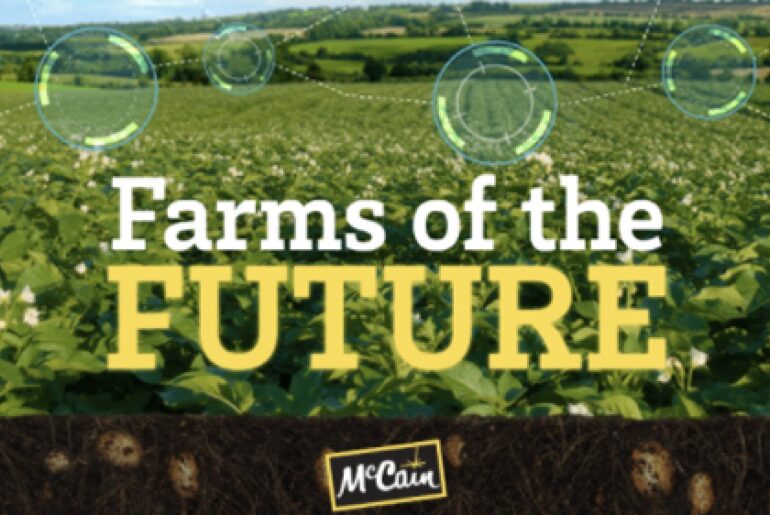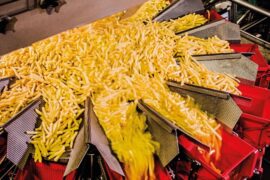McCain Foods Limited on June 7 unveiled plans for a second Farms of the Future in South Africa, presented “as part of its drive to cut carbon emissions and tackle the impacts of climate change.” All of the potatoes grown there will be made into french fries and other frozen potato products utilized by consumers across Africa.
The company has identified two South African locations totaling 465 ha irrigation and 90 ha dry land on which it will grow 125 ha potatoes for use across the country per year. The farm will focus on enhancing productivity, while prioritizing soil health, water efficiency, the reduction of agro-chemical impacts and the introduction and preservation of biodiversity. This comes after last year’s announcement of the first Farm of the Future location in Florenceville, New Brunswick, Canada.
McCain plans to open three Farms of the Future in different growing regions around the world by 2025. It is all part of a global commitment to implement regenerative agriculture across 100 per cent of its potato acreage by 2030.
Noting that the Farms of the Future project is vital in trying to make the global food system more sustainable, McCain CEO Max Koeune stated: “This is a critical moment. The strain that global supply chains are under right now is shining a stark light on how exposed we are, with a food system that requires a radical transformation to address the challenges of our century.

“If we don’t change the way we farm, feeding the world in 30 years will require an 87 per cent increase in carbon emissions. The implications of that are bleak – and we cannot allow it to happen. Farmers are on the front line here – they see the impacts every day, with extreme weather wreaking havoc on the growing season. Working collaboratively, we believe this transformation will ensure both McCain and our farmers will have a business for generations to come.”
At Farm of the Future Africa, the potential to grow multiple crops per year, innovate with irrigation technology in a water-scarce region as well as the challenges arising from the presence of soil-borne pests and diseases make it the ideal location for transferring learning to other parts of the world, including China, India, Australia, New Zealand, Argentina, Brazil, and Colombia.
Farm of the Future Canada in Florenceville, New Brunswick has seen strong yields after just one year in operation, and fertilizer application at the site is already down by more than 16 per cent compared to typical McCain growers in the area. The reduction is mainly in nitrogen and phosphorous, a cut that helps reduce greenhouse gas emissions by approximately 2 per cent compared to grower historical average.
Charlie Angelakos, vice president of global external affairs and sustainability at McCain Foods, said: “The potential of the Farms of the Future project is enormous. It allows us to test and learn in different climates and geographies and to discover how best to leverage rapidly developing technology and agricultural practices – all in close collaboration with farmers to ensure it is economically viable and scalable for them.”
About McCain
McCain Foods Limited is a family-owned business founded in 1957 in Canada. Today, the company ranks among the world’s largest manufacturers of frozen potato products and is a global leader in frozen appetizers and snacks. Its products can be found in restaurants and retail stores in more than 160 countries around the world. The company has major production, retail and corporate operations across North America. Globally, it employs approximately 22,000 people, operates 49 production facilities on six continents, partners with 3,500 farmers and generates annual sales in excess of CDN $11 billion.






